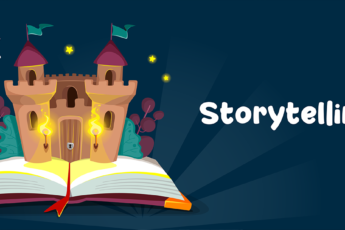How to Counter Learned Helplessness

Learned helplessness is considered a debilitating mental state, where a person believes that they cannot influence the outcome of a situation. This condition, as well as crediting “failure” to be a learning opportunity, has had dramatic effects on the education system, most notably by contributing to chronic underperformance and high dropout rates.
Research indicates that students who have experienced repeated failure from a young age can develop an emotional state of helplessness. These kids actually start to believe there isn’t anything they can do to change their situation, and even if there were, they think they don’t have the skills to do it.
For many students, failure is accepted as a normal part of their school experience in India. They see themselves as helpless to control their own grades and outcomes, but educators can encourage students to reframe their experiences in positive terms. This leads to more engagement with learning, and it offers students the opportunity for more engaging learning experiences.
Students who have learned helplessness may experience several negative traits while learning in a classroom context. These include:
- Refusal of help because they feel they won’t need it
- Frustration with whatever situation comes up.
- Using whiny or negative language when trying to solve a problem
- Lack of motivation or initiative for complex tasks
- Lack of self-worth and self-efficacy (a feeling that indicates whatever will happen, you decrease your chance of success).
Educators need to adopt practical strategies and techniques that target these feelings to effectively address learned helplessness. Here are a few things they can do.
Rethink the Grading System
In many schools around the country, teachers hand out low scores for poor performance on homework or exams, and even a zero. The idea of a zero may be too negative and off-putting, especially when there are so many other ways to highlight the best work. If possible, allow for retakes on some or all assignments, and emphasize that only one opportunity is offered. If a student can show that she tried her best, then giving her another chance to do the assignment may be the best option.
Normalize Failing
Failure is a part of what makes us human. However, failure can often be hard for kids to handle. Kids are very emotionally sensitive, and failure can lead to frustration, discouragement, and even shame. Teachers can help kids reframe failure to see it as a necessary part of life that leads to success. This allows students to create a growth mindset, reinforcing the idea that challenging problems are an essential part of problem-solving activities in school. It also teaches students that effort, not talent, is the critical ingredient for success.
Praise and Encourage
Research shows that praising effort over an individual’s ability has long-lasting benefits on children’s motivation, self-esteem and intrinsic interest towards a particular task. An effort is a more malleable characteristic, so praise for it can have a more significant impact. Efforts are also less prone to attribution error; we are just as happy to praise someone’s effort as we are with their intelligence or skill. Praising effort can change the way students think about themselves and their inherent abilities. When we praise only innate ability, students feel they have limited control over their success. But when we applaud the effort, students see that their actions play a role in determining their success. It reframes success as the result of effort, not because of an already existing, intrinsic ability. And that reframing can be very helpful to help them with learned helplessness.
At Square Panda, we are passionately focused on enabling children to succeed. Our personalized learning programs enable each student to learn at their own pace. We believe that everyone needs a little extra push to overcome learned helplessness and start believing in themselves again, and realize not just their learning and development goals, but also their full potential.
To know more about us, visit https://www.squarepanda.in/




Leave a Comment